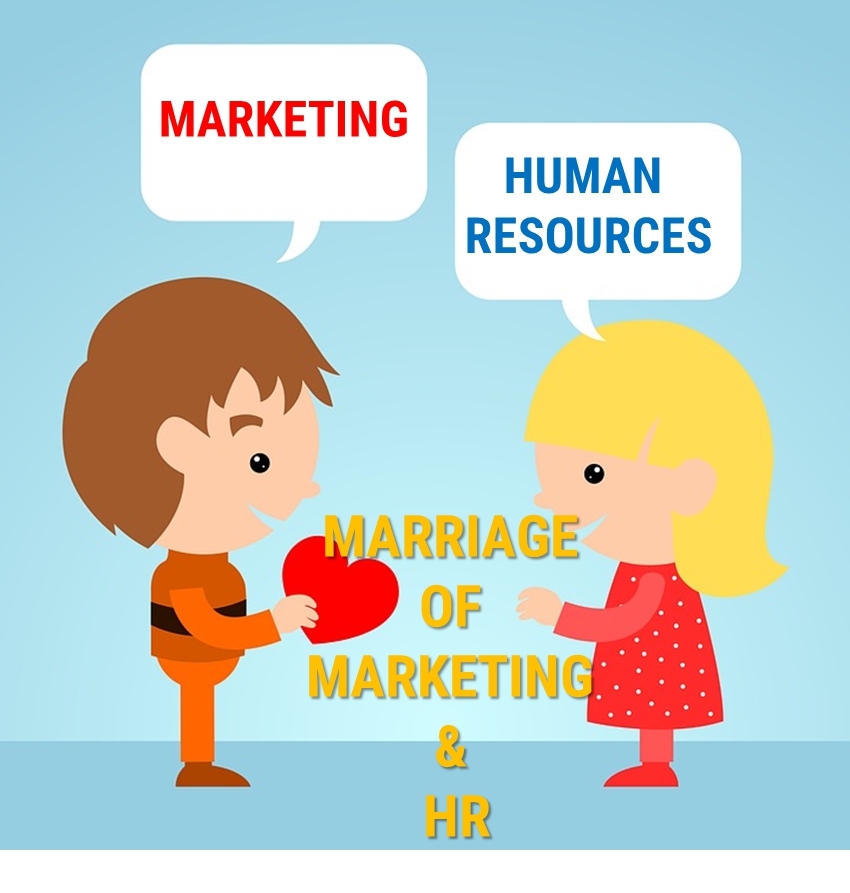There is a remarkable connection between marketing and HR, which when realised can work wonders for a business.
While sales and marketing have always functioned hand in hand, futuristic industry experts believe it’s time HR and marketing came together. Despite the fact that the two functions seem too distinct in the roles they play in making a business successful, there is a remarkable connection between them, which can work wonders for a business, when realised.
A digital marketing agency, Mabbly, explains this unheeded yet natural partnership and its benefits through an infographic. It logically asserts that brands and cultures are like mirror images. The culture of an organisation defines the kind of brand it is and that is what the marketers represent. This means that marketers who believe in their organisational culture and are happy and engaged will reflect the brand better and will be able to sell it better.
Look beyond profit
Profit is the end goal for any business, yet, it cannot be the be all and end all. The infographic asserts that ‘while profit-driven companies suffer, purpose-driven companies benefit’. It also shares that employees in purpose-driven organisations are comparatively more engaged and satisfied than those organisations, which are better able to hire the best talent and generate higher revenues per employee. In addition, their high performer turnovers go down by 40 per cent and overall turnover is lesser by 17 per cent.
Brand and culture are interrelated
Just as one’s upbringing and values reflect in how one behaves, the culture of an organisation is always evident from the way its marketers perform. Also, when it is already an established fact that a brand is the reflection of culture, it makes more sense to align marketing and HR in an organisation.
“Marketing should support by communicating the culture to the external world.”
Chandrashekhar Mukherjee
The most basic yet contemporary explanation of why it is important for organisations to consider the shift in human mindset is the fact that most people have now moved up the needs pyramid. With technology helping people climb up the levels, most workers now seek self-actualisation and prefer jobs where they see a clear purpose. This also means that recruiters need to be extremely careful about ensuring a culture fit, while hiring.
Chandrashekhar Mukherjee, group chief people officer, Srei Infrastructure Finance, believes that HR professionals are internal brand ambassadors and they also sort of play a marketing role when they have to recruit. At the same time, “Marketing should support by communicating the culture to the external world. If marketing does not portray the same culture externally, as it exists internally, it’s not going to work,” he says.
“The key to sustainable profits, in fact, lies in not chasing profits but ensuring a strong brand identity that thrives on the culture of the organisation.”
Indraneel Das
He is also of the view that while the role of HR is to build and preserve the culture, marketing is responsible for building and representing the brand. In line with that, he says, “Only with the right culture, comes the main brand and also the employer brand.” That said, when it is already an established fact that brands are the reflection of culture, it makes much more sense to align marketing and HR in an organisation.
An exemplary organisation that has lived its brand values for over a century and survived the test of time, is Kohler. Founded in 1873, the 144-year old company wouldn’t have made it without the right kind of culture, which all of its employees breathed. “It is important that every employee lives by the vision of the organisation. At Kohler, ‘leading by design’ translates across functions and while it is the responsibility of HR to disseminate these values internally, it is marketing that propagates it to the external world,” says Indraneel Das, who heads the sales-capability function at Kohler, which also is an example of a role that amalgamates marketing and HR.
Das also says, ‘After all, every service or product begins with humans and ends with humans’. The key to sustainable profits, in fact, lies in not chasing profits but ensuring a strong brand identity that thrives on the culture of the organisation. Fortunately, more and more organisations are now realising the benefits of blending marketing and HR. So much so, that branding, communication and HR have become like a singular function in some companies now.
On one hand, the collaboration helps organisations build stronger employer brands, while on the other hand, even HR in such organisations focusses on customer-centric strategies. With this, the boundaries between HR and marketing are blurring fast and the future of work will certainly see the two merging beautifully, to create soulful brands that are true to their culture.



